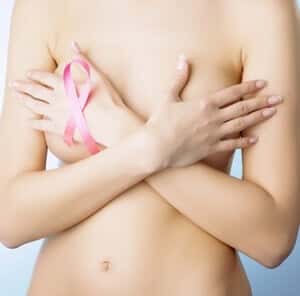
Women being treated for a certain type of breast cancer may want to control their diets to maximize the effectiveness of their breast cancer treatment. Some estrogenic compounds in foods apparently interfere with palbociclib plus letrozole (Cell Chemical Biology, online, Jan. 11, 2018).
The combination of palbociclib (Ibrance) and letrozole was approved in 2015 to treat estrogen-receptor positive metastatic breast cancer. A study published in 2016 demonstrated that this combination worked better than placebo and letrozole for women with estrogen-receptor positive, HER-2 negative breast cancer (Finn et al, New England Journal of Medicine, Nov. 17, 2016).
Which Foods Might Mess with Breast Cancer Treatment?
Two estrogen mimics, genistein found in soybeans and zearalenone from a fungus in corn, were tested in tissue culture. Both blocked the benefits of the chemo combination in the experiments. The scientists suggest that other estrogenic compounds found in food may also be worrisome for this breast cancer treatment. On the other hand, they have not yet subjected other food compounds to interaction experiments.
The idea that estrogenic compounds in foods or herbs might impact cancer outcomes needs to be investigated more thoroughly. A number of other foods may also contain some estrogen mimics that could have an effect on breast cancer treatment. Flavonoids and lignans common in plant-based foods have estrogen-like activity (Safe & Gaido, Environmental Toxicology & Chemistry, Jan. 1998). While most such foods are considered healthful, women undergoing breast cancer treatment should ask their oncologists about them.

